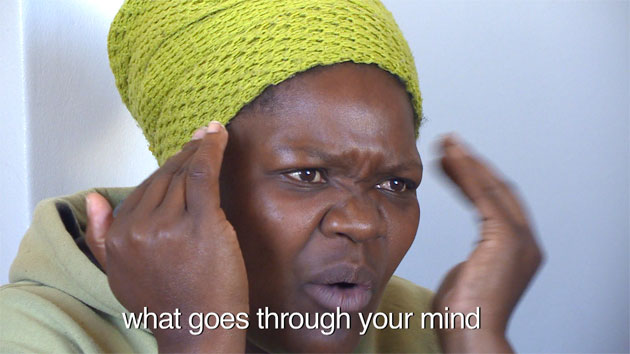Rape Survivors Part Two Episode Recap
Former Western Cape Provincial Police Commissioner Mzwandile Petros recalled that during his time in the role, there would be “long queues of people reporting crimes against women and children, (but) on Monday, you have a long queue of people wanting to withdraw these cases.” Indeed, Petros’s recollection, as reported in the Sunday Times, matches the reality of many rape survivors in South Africa who have been unsuccessful in prosecuting their rapists. The article mentions that “being drunk (or accepting a drink from the alleged perpetrator), hitchhiking, flirting, or selling sex all diminish a complainant’s credibility.” Thus, it is very difficult to convict someone of rape in the country, even if there is substantial evidence that an unwanted sexual act occurred. Even current President Jacob Zuma, who was accused of rape, was suspiciously cleared of charges- his victim ended up fleeing the country for a time. The lack of justice being served has detrimental effects on victims. One anonymous victim told Street Talk TV that people in her neighborhood said that she “did a bad thing by reporting him.” Athi Sompethe told us that “he (her rapist) talks about me to other people and they think we’re together.” Situations such as these cause victims to suffer intense stress, and many informed us that they found themselves feeling more angry, yelling more, and becoming resentful of their families, primarily because their rapists could not be brought to justice, and they could not yell at their rapists.
In 2009, statistics in one report showed that 19.6% of men who committed rape were HIV positive. However, according to Rape Crisis in South Africa, injuries to the vagina or anus due to sexual violence can also increase a victim’s chances of contracting the disease, even if their rapist was not HIV positive. Nomawethu Matiwana explained that she “was not HIV positive before he raped me,” and told Street Talk TV that she hopes what happened to her “will not happen to (her) daughter.” Others confirmed that they had contracted HIV from their rapists as well. Therefore, rape is not just a sexual violence problem- it is a disease spreading mechanism. While under Act 32 of 2007 (Criminal Law (Sexual Offences and Related Matters) Amendment Act), HIV negative rape survivors have the right to free post-exposure prophylaxis, a short term treatment that reduces one’s chance of becoming infected with HIV, Rape Crisis in South Africa reports that “inadequate knowledge and awareness of PEP among both health workers and patients, secondary trauma caused by prejudice among health care workers, and the stigma surrounding HIV,” among other barriers, cause this service to not be taken advantage of.
Africa Check’s 2014-2015 assault and sexual crime statistics for South Africa note that “police statistics for assault are notoriously unreliable because most victims don’t report these crimes to the police,” so it is difficult to show the greater community how pervasive the problem of rape is in South Africa. Victims are often forced to work through trauma resulting from rape on their own, due to the lack of services available to them. Fumana Ntlontlo told us that she would tell her rapist this: “you may have taken my virginity but I’ve got my strength back, I’ve got my power back, and I’ve got my dignity back.”
-Roz KennyBirch
Sources:
http://rapecrisis.org.za/rape-in-south-africa/#consequences-of-rape
http://www.timeslive.co.za/local/2016/02/19/Rape-in-South-Africa-why-the-system-is-failing-women




